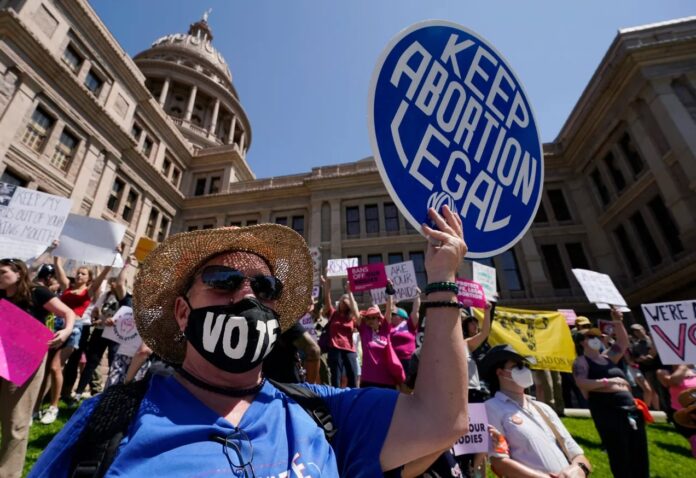Texas is at it again with its no-holds-barred approach to women’s rights. Lubbock County just raised its hand to become the fourth and biggest county in Texas to say, “Hold up, you can’t travel if you’re thinking about an abortion!”
Joining the less-than-illustrious group that includes Goliad, Mitchell, and Cochran Counties, Lubbock has gone full throttle on the anti-choice movement. And if you think Texas was already tough on abortion, you’re absolutely right. The state has been declared by the Center for Reproductive Rights as one of the strictest places to get an abortion. Result? Texans often embark on a whopping 240-mile journey, both ways, to access care. Some even make the extreme choice of traveling out of the country. Yikes!
Now, these bans aren’t just your average Joe kind of bans. They’re essentially designed to slap lawsuits on anyone who dares to assist a person seeking an abortion. While the individuals seeking abortions are safe from direct legal fire, those offering them a helping hand are in the crosshairs. Anti-choice activists, with a flair for dramatic naming conventions, are branding these as anti-“abortion trafficking” laws. Cute, right?
The masterminds behind this disturbing movement are Mark Lee Dickson, a hardcore anti-abortion extremist, and Jonathan F. Mitchell, Texas’s former solicitor general. The latter’s claim to fame? Crafting the Texas “bounty hunter” abortion ban. He’s not content with just that though. He’s recently demanded patient info from multiple Texas abortion funds. Attorney Lisa Needham paints Mitchell as a central figure in the culture war, pulling laws further to the right.
Dickson, meanwhile, dreams of an America where abortion is universally seen as a taboo and is banned in every state. He’s been tirelessly advocating for these travel bans, and if his zeal is any indication, he’s not stopping anytime soon.
A glimpse of this played out in Amarillo. A heated debate ensued over the possible enactment of an abortion travel ban, targeting routes leading to abortion-friendly states like New Mexico and Colorado. Amarillo’s city council, for now, has opted to wait on voting, but the intention is clear.
It’s sneaky, too. Both Dickson and Mitchell seem to have intentionally devised these laws to be enforced by private citizens, sidestepping official channels, and making it tougher for the laws to be immediately challenged in court. Even Lubbock County Commissioner, Curtis Parrish, while empathizing with the anti-abortion sentiment, expressed apprehensions over its legal standing.
What’s surprising? Even conservative Supreme Court Justice Brett Kavanaugh believes that states can’t block residents from traveling elsewhere for an abortion. It’s based on our constitutional right to interstate travel, he says.
The big concern? Even if these bans are largely symbolic, they still inflict pain and confusion on Texans wanting to access out-of-state abortions. Planned Parenthood’s spokesperson, Autumn Keiser, sums it up: “Texans already live under some of the most restrictive and dangerous abortion bans in the country…”



